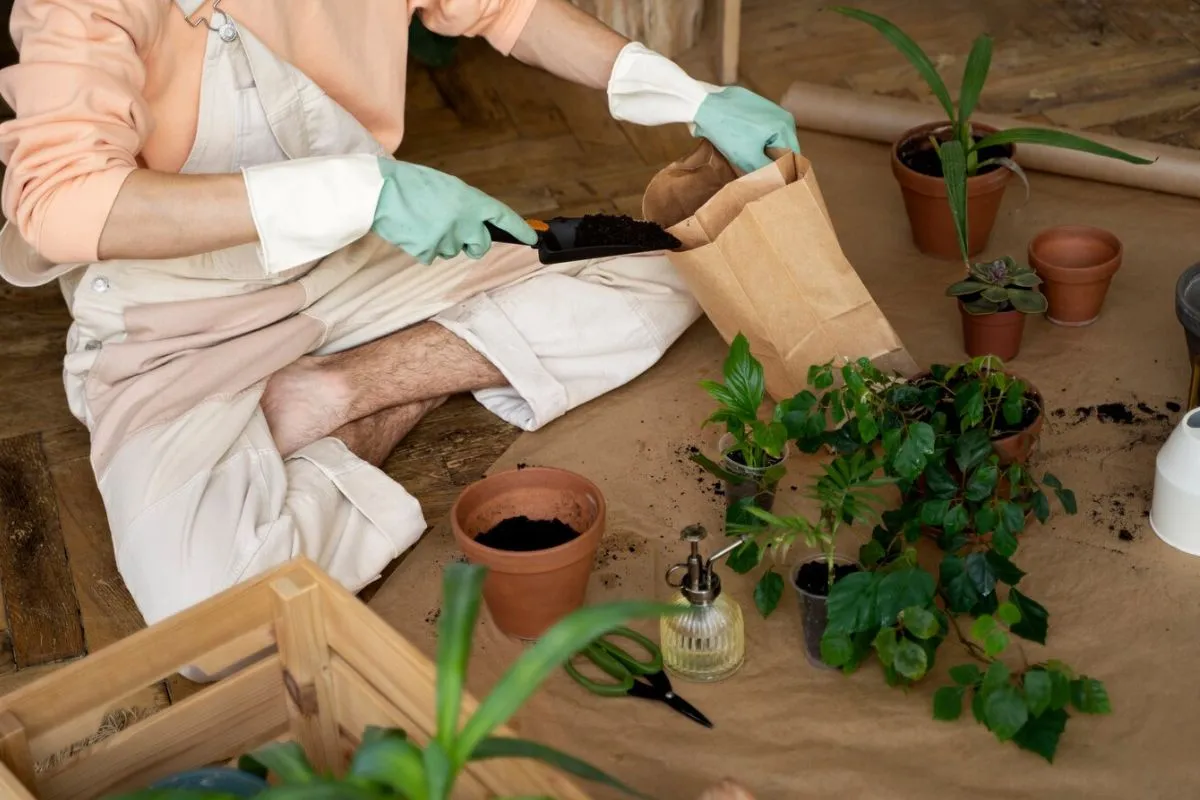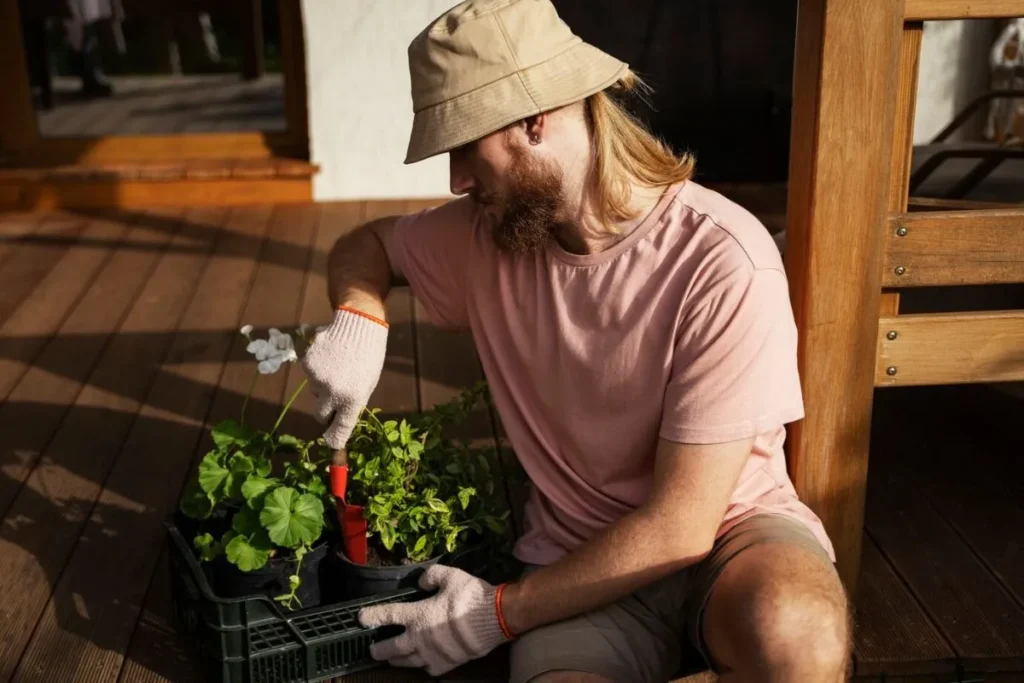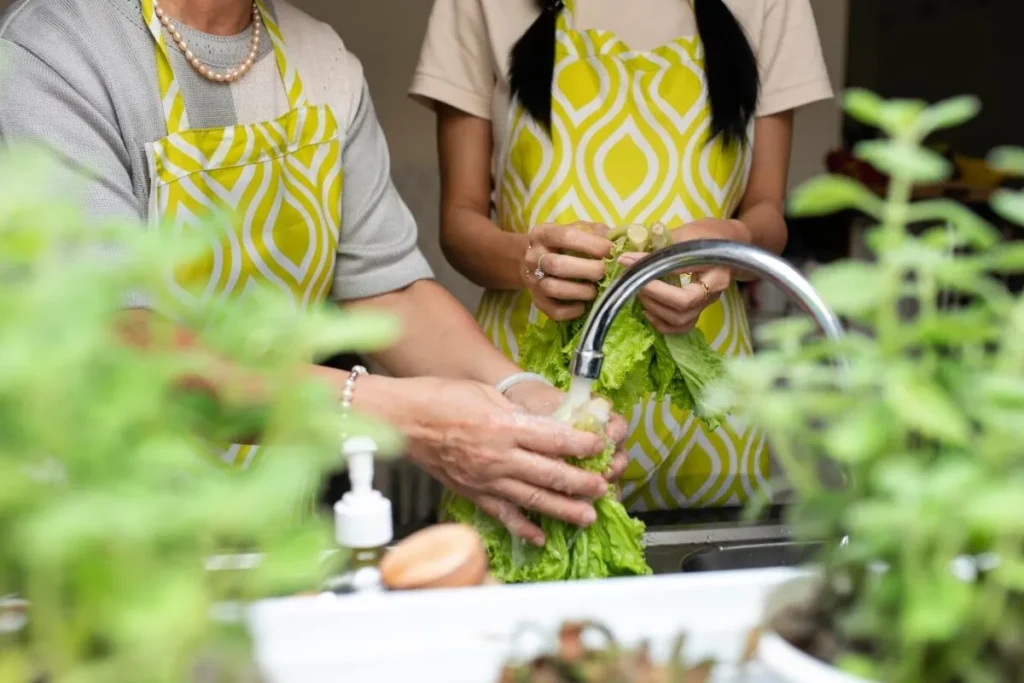Creating Zero-Waste Edible Plant Gardens is an innovative approach that merges sustainability with gardening. It’s a solution to reduce waste and promote organic, healthy living.
In this article, we will explore various techniques to achieve zero-waste in gardens. The benefits of such gardens will also be highlighted.
We’ll look at practical steps and effective methods to help you create a self-sustaining garden. Let’s delve into the world of zero-waste gardening.
Introduction to Creating Zero-Waste Edible Plant Gardens
Creating zero-waste gardens involves practices that minimize waste. It’s about using organic methods and recycling materials. Composting kitchen scraps and garden waste enriches the soil naturally, reducing the need for synthetic fertilizers. Reusing containers and repurposing old tools also contribute to waste reduction.
Edible plants play a crucial role as they provide fresh produce. These homegrown delights ensure a steady supply of nutrients. Planting a variety of vegetables and herbs not only diversifies your diet but also supports biodiversity in your garden. Companion planting techniques can further enhance plant health and yield.
This method boosts sustainability. It integrates seamlessly into eco-friendly lifestyles, making the environment richer and healthier. Zero-waste gardening also conserves water through practices like rainwater harvesting and mulching, which retain soil moisture. Additionally, it reduces your carbon footprint by cutting down on the need for store-bought produce and gardening supplies.
Incorporating native plants into your garden is another sustainable practice. These plants are well-adapted to local conditions, requiring less maintenance and resources.
Creating a habitat for pollinators, such as bees and butterflies, further supports the ecosystem, ensuring a thriving and balanced garden environment.
The Core Principles
The foundation of zero-waste gardening is sustainability. This involves composting, smart water usage, and plant selection.
Using organic materials eliminates harmful chemicals. It enhances soil fertility and boosts plant health.
Recycling garden waste is also key. This ensures that all materials are reused beneficially within the garden ecosystem.
Key Techniques for a Zero-Waste Garden
- Composting garden waste and kitchen scraps
- Utilizing rainwater harvesting methods
- Choosing native and perennial plants
- Employing permaculture principles
The Benefits of Zero-Waste Edible Plant Gardens
One of the major benefits is enhanced sustainability. These gardens contribute to reducing the carbon footprint. By using organic methods, they eliminate the need for chemical fertilizers and pesticides, which are harmful to the environment. Furthermore, these practices promote biodiversity by creating habitats for various beneficial insects and wildlife.
Another advantage is the access to fresh, organic produce. This leads to a healthier diet and lifestyle. Homegrown vegetables and fruits are free from harmful pesticides and preservatives, ensuring you consume nutrient-rich food.
Additionally, having a garden encourages more frequent consumption of fresh produce, improving overall health.
Economic benefits are also significant. Growing your own food can reduce grocery expenses considerably. With the rising cost of organic produce in stores, having a garden provides a cost-effective alternative.
Over time, the savings on grocery bills can offset the initial investment in setting up the garden, making it a financially wise choice.
Moreover, zero-waste gardening fosters a sense of accomplishment and connection to nature. The process of growing your own food can be therapeutic and rewarding, offering mental health benefits.
It also provides educational opportunities, teaching valuable skills in sustainability and self-sufficiency to both adults and children.
Environmental Impact
Zero-Waste gardens help in conserving resources. They utilize organic waste effectively, cutting down on landfill contributions.
They also promote biodiversity. Diverse plant species create a balanced ecosystem for beneficial insects and animals.
This approach minimizes the use of synthetic fertilizers. It ensures that harmful chemicals do not enter soil and water bodies.
Health Benefits
Consuming homegrown, organic edible plants offers numerous health benefits. They are free from harmful pesticides and chemicals.
Fresh produce retains more nutrients. This ensures you get more vitamins and minerals compared to store-bought items.
The physical activity involved in gardening also promotes fitness. It’s a great way to ensure you stay active and healthy.
Economic Advantages
Growing your own vegetables and fruits can save money. It reduces the dependency on supermarket produce.
Initial investments in seeds, soil, and tools are offset by long-term savings. The garden becomes a self-sustaining food source.
It also adds value to your property. A thriving garden can increase the aesthetic and market value of your home.
Creating Your Own Zero-Waste Edible Plant Garden
Start with a well-thought-out plan. Determine which edible plants you will grow, considering your climate and soil conditions. Research the best planting times and companion planting techniques to maximize your garden’s productivity. Create a layout that optimizes space and sunlight exposure, ensuring each plant has the room it needs to thrive.
Set up a composting system. This is essential for recycling kitchen scraps and garden waste. Choose a compost bin that suits your space and needs, and learn the basics of composting, such as balancing green and brown materials. Regularly turn the compost to speed up the decomposition process, creating nutrient-rich soil for your garden.
Use rain barrels for water conservation. This simple step can significantly reduce your reliance on municipal water sources. Position the barrels under downspouts to collect rainwater efficiently.
Use this water for irrigation, and consider installing a drip system to minimize water waste. Regularly clean the barrels to prevent algae growth and mosquito breeding.
Incorporate natural pest control methods to maintain a healthy garden. Attract beneficial insects like ladybugs and bees by planting flowers and herbs that they love.
Use organic pest repellents, such as neem oil or garlic spray, to keep harmful pests at bay. Additionally, practice crop rotation to prevent soil depletion and reduce the risk of pest infestations.
Choosing the Right Plants
Select native plants that are well-adapted to your local climate. This ensures better growth and fewer resources.
Consider perennial vegetables and herbs. They require less maintenance and continue to produce over the years.
Companion planting can be beneficial. It helps in pest control and improves plant health naturally.
Practical Tips for Maintenance
- Regularly check for pests and manage them organically
- Mulch your garden to retain moisture and suppress weeds
- Prune plants to encourage healthy growth
- Rotate crops to maintain soil health
Future of Zero-Waste Gardening
The concept of zero-waste gardening is expanding. It aligns with global sustainability goals and practices. By integrating these methods, gardeners contribute to a healthier planet. The movement also supports the reduction of landfill waste and promotes a circular economy.
Technological advancements are aiding this movement. Innovations in composting and water management are making a difference. Smart irrigation systems and automated composters streamline the process. These technologies help maximize efficiency and minimize human effort.
Community-driven initiatives are crucial. Shared gardens and cooperative efforts can help propagate these practices widely. Educational programs and workshops can raise awareness. By working together, communities can create sustainable, zero-waste environments.
Encouraging local governments to support zero-waste gardening can further amplify its impact. Policy changes and incentives for sustainable practices can drive broader adoption. This collective effort can lead to significant environmental benefits and a more sustainable future.
Educational Opportunities
Workshops and courses are being developed. These educate people on the benefits and practices of zero-waste gardening.
Schools and local organizations are incorporating these principles. They encourage students and members to participate.
Online resources and forums offer valuable insights. They provide a platform for sharing experiences and solutions.
Policy and Support
Government policies are increasingly supportive. Incentives for sustainable gardening practices are being introduced.
Grants and subsidies for community gardens are available. They help in the initial setup and maintenance costs.
Environmental groups are advocating for these practices. Their efforts are crucial in driving widespread adoption.
What to Take Away
Creating Zero-Waste Edible Plant Gardens is a step toward a sustainable future. It offers numerous environmental, health, and economic benefits.
Adopting these practices can lead to a healthier lifestyle. It encourages a closer connection to nature and sustainable living.
Join the movement today. Start your own zero-waste garden and enjoy the rewards of homegrown, organic produce.
Frequently Asked Questions
What is a zero-waste garden?
A zero-waste garden minimizes waste by recycling all materials and using organic methods to sustain plant growth.
What are the benefits of edible plant gardens?
They provide fresh, organic produce, promote health, enhance sustainability, and offer economic advantages.
How do I start my own zero-waste garden?
Begin with planning, composting, and water conservation methods. Choose native and perennial plants for easy maintenance.
Can zero-waste gardens reduce my grocery costs?
Yes, growing your own food can significantly cut down on grocery expenses.
Is zero-waste gardening suitable for all climates?
With the right plant selection and techniques, zero-waste gardening can be adapted to various climates.



